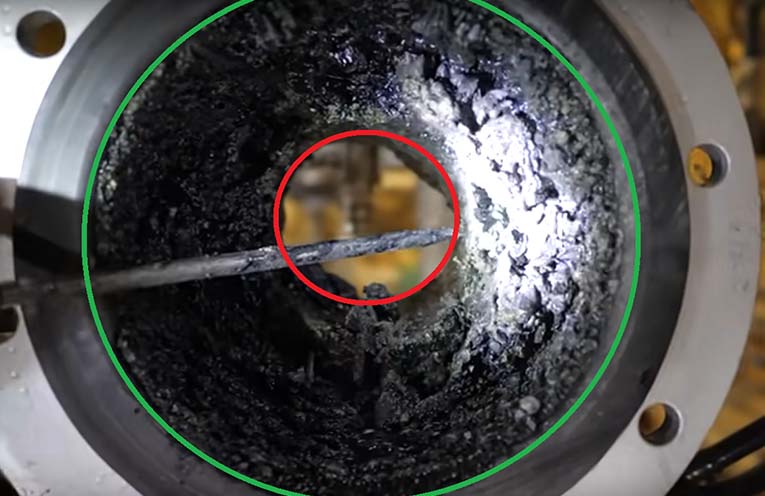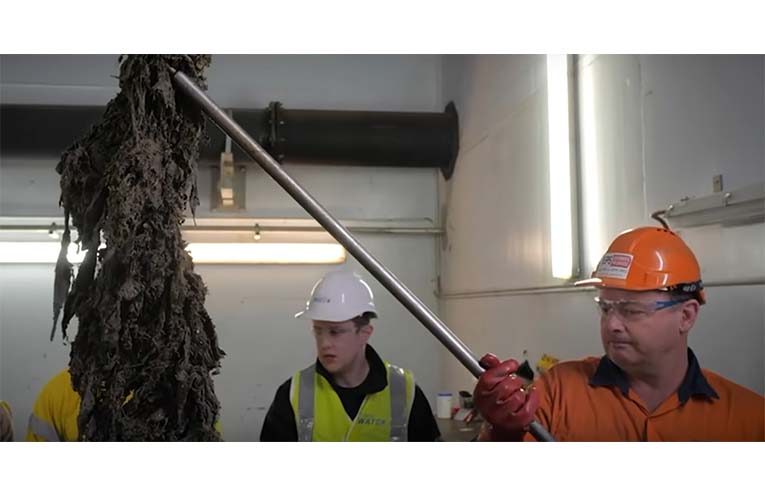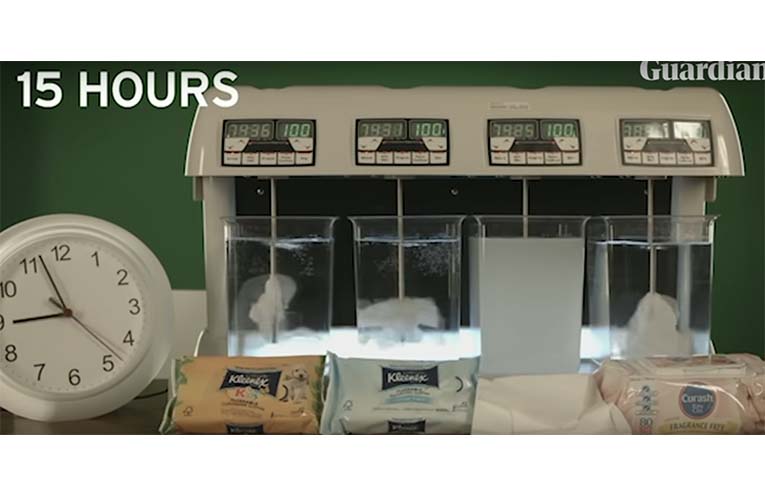
HOUSEHOLD habits are a major contributing factor to sewer system distress, and MidCoast Council is asking residents to reconsider what they flush.
While many ‘wet-wipe’ products will declare ‘flushable’, made from ‘water-soluble fibres’, consumers must penetrate the misleading marketing rhetoric.
 Advertise with News of The Area today.
Advertise with News of The Area today.It’s worth it for your business.
Message us.
Phone us – (02) 4981 8882.
Email us – media@newsofthearea.com.au
Unfortunately, in October 2016, the Federal Court ruled to protect large corporations’ right to use the term “flushable” on their products, so consumers are on their own.
In 2019, The Guardian Australia posted an excellent, concise video (https://www.youtube.com/watch?v=O4ECz4NPPf8), featuring process workers at Sydney Water’s largest treatment plant at Malabar, who have to deal with it manually on the ‘other end’, giving direct testimony of the destruction wrought by wet-wipes upon our sewers.
“Wet-wipes combine with fat, oil and grease builds up in the pipes over time, which solidifies into ‘fatbergs’, a rock-hard substance that blocks the pipes,” Sydney Water’s Peter Hadfield states in the video.
Not just a ‘big city’ problem, MidCoast Council has confirmed that wet-wipes have also been behind two recent sewer surcharges in our region, one causing sewage seepage into Black Head Lagoon, another closing a park and children’s playground in Taree.
Raw sewerage smothering your kids’ outdoor play areas is a tough problem to spin.
Even liquid waste transporters from rural properties carry the problem.
Marnie Coates, MidCoast Council’s Executive Manager of Water and Systems, said, “While no one ever intends to cause these issues, it ultimately originates in the home, when people flush wet-wipes down the toilet.
“The best advice is: if you use wet wipes in or around your bathroom, put a bin in there so you can safely dispose of them,” Ms Coates advises.
“It’s an issue that’s costing us hundreds of thousands of ratepayer dollars every year, but if everyone followed this simple tip, the problem would quickly disappear.”
Ms Coates said it was always best to follow the 3Ps rule – the only things that should be flushed down the toilet are pee, poo and toilet paper.
By Thomas O’KEEFE


